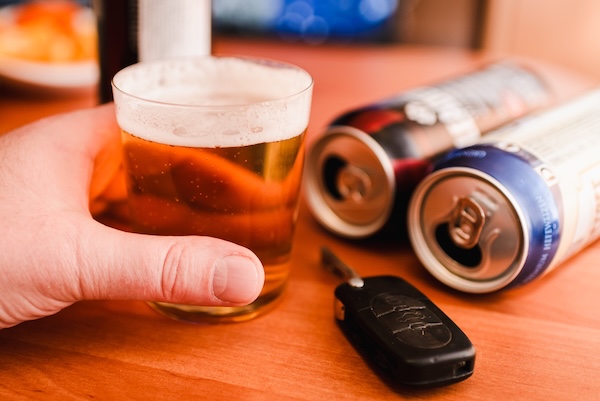Understanding DUI Penalties and Fines in North Carolina
If you’ve been arrested for drunk driving in North Carolina, you’re likely facing a confusing and stressful legal process. The consequences of a DUI conviction can be severe—even for a first offense—and may include steep fines, driver’s license suspension, mandatory substance abuse treatment, and even jail time. Understanding the full scope of DUI penalties and fines in North Carolina is essential to protecting your future.
As a trusted DUI defense lawyer in Asheville, we know how overwhelming this situation can be. The complexities of North Carolina DUI laws—from determining whether aggravating or mitigating factors apply, to navigating license suspensions and court-ordered requirements—demand an experienced legal advocate by your side. Whether you’re a first-time offender or facing charges with prior convictions, knowing your rights and options can make a critical difference in the outcome of your case.
In this post, we’ll break down the key penalties associated with DWI convictions, how aggravating and mitigating factors impact sentencing, and what steps you can take right now to defend yourself under NC DWI laws.
Overview of North Carolina DUI Laws
Under North Carolina DUI laws (also known as NC DWI laws), it is illegal to operate a motor vehicle while impaired by alcohol, drugs, or both. The legal limit for blood alcohol content (BAC) is 0.08% for most drivers, 0.04% for commercial drivers, and zero tolerance applies to drivers under 21.
Law enforcement typically uses a chemical analysis—such as a breath or blood test—to determine impairment. Refusing this test results in automatic driver’s license suspension, regardless of the final outcome in court.
Drunk driving laws in North Carolina also apply to impairment from prescription or illegal drugs, not just alcohol. Penalties vary based on whether it’s a first offense, second offense, or if there are prior convictions or aggravating factors involved.
Because the consequences of a DUI conviction can be severe, it’s crucial to work with a knowledgeable dui defense lawyer if you’re facing dwi charges in North Carolina.
First Offense DUI: What to Expect
Being charged with a first offense DUI in North Carolina is serious—even if it’s your first time dealing with the legal system. While the penalties may be lighter than for repeat offenders, they can still have a lasting impact on your life.
Here’s what you can expect:
- Fines and court costs over $1,000
- Up to 24 hours of jail time or community service
- Required alcohol education classes and a substance abuse assessment
- At least a 30-day driver’s license suspension, possibly longer depending on your blood alcohol concentration
- Possible requirement to install an ignition interlock device
The court will also consider aggravating and mitigating factors. A high BAC, reckless driving, or driving a commercial vehicle could lead to tougher penalties. But if you showed only slight impairment or took steps like voluntary substance abuse treatment, that may help reduce your sentence.
Most first DUIs are classified as Level 5 offenses, the least severe under North Carolina DUI laws. Still, if aggravating factors outweigh mitigating factors, the penalties can increase quickly.
That’s why it’s important to work with a knowledgeable dui defense lawyer who can evaluate your case, protect your rights, and help minimize the consequences—possibly even reducing your charge to wet reckless.
Repeat Offenders: Second and Third DUI Convictions
A second DUI conviction or third offense in North Carolina brings far more severe consequences than a first-time charge. Under North Carolina DUI laws, penalties escalate with each offense, and repeat offenders face increasingly strict enforcement and reduced chances for leniency.
Harsher Penalties for Repeat Offenders
For those convicted of a second or third DWI offense, the penalties can include extended prison sentences, significantly higher fines, and increased court costs. Your driver’s license may be suspended or even permanently revoked, and you could be required to complete a comprehensive substance abuse assessment followed by long-term substance abuse treatment. In most cases, the court will also order the installation of an ignition interlock device, and you may lose eligibility for limited driving privileges altogether.
Grossly Aggravating Factors
One of the most important considerations in any repeat DUI case is whether grossly aggravating factors are present. These include situations like having a prior DWI conviction within the past seven years, driving while your license is already revoked due to a previous DUI, causing bodily injuries to another person while impaired, or transporting a child under the age of 18 during the offense. When these factors are present, the court may impose Level 1 or Aggravated Level 1 sentencing, which includes the most severe penalties allowed under NC DWI laws, including up to three years of prison time.
Other Aggravating and Mitigating Factors
Even if no grossly aggravating factors are involved, repeat DUI cases are still evaluated for standard aggravating or mitigating factors. Aggravating factors might include a very high blood alcohol concentration, a pattern of reckless driving, a poor driving record, or attempting to evade a police officer. These factors increase the likelihood of a harsh sentence, especially if the aggravating factors outweigh mitigating factors.
On the other hand, the presence of mitigating factors may help reduce the severity of the punishment. Examples include voluntary participation in drug treatment, evidence of slight impairment despite being over the legal limit, or showing cooperation with law enforcement. If the mitigating factors outweigh aggravating factors, the court may allow for a reduced sentence or even a suspended sentence in certain cases.
Aggravating, Grossly Aggravating, and Mitigating Factors
The sentencing process for DWI convictions in North Carolina isn’t only based on whether you’re guilty—it’s shaped by specific circumstances known as aggravating, grossly aggravating, and mitigating factors. These legal elements influence how harshly the court treats your case and what penalties you may face under North Carolina DUI laws.
Grossly Aggravating Factors
These are the most serious and can trigger mandatory enhanced penalties, including Level 1 or Aggravated Level 1 sentencing. Common examples include:
- A prior DWI conviction within seven years of the current charge
- Driving while your driver’s license is already revoked due to a previous DUI conviction
- Causing bodily injuries while impaired
- Driving with a child under the age of 18 in the vehicle
Even a single grossly aggravating factor can result in severe consequences such as extended prison time, court-ordered substance abuse treatment, and a prolonged license suspension.
Aggravating Factors
Less severe than grossly aggravating factors but still significant, aggravating factors increase the likelihood of a tougher sentence. These might include:
- A blood alcohol concentration of 0.15% or higher
- Evidence of reckless driving or speeding excessively
- Attempting to evade a police officer
- A poor driving record, including previous traffic violations
- Driving a commercial vehicle or school bus while impaired
If aggravating factors outweigh mitigating factors, the court is likely to impose a stricter punishment.
Mitigating Factors
These are circumstances that can work in your favor during sentencing. If they are compelling enough, and mitigating factors outweigh aggravating factors, the court may reduce your penalties or grant alternatives like a suspended sentence. Mitigating factors can include:
- A relatively low alcohol concentration, especially near the legal limit
- Signs of slight impairment rather than obvious intoxication
- Voluntary participation in substance abuse assessment, alcohol education classes, or drug treatment before trial
- A previously clean driving record
Why This Matters in Sentencing
Judges in North Carolina are legally required to evaluate these factors when sentencing a DWI defendant. The presence—or absence—of specific aggravating or mitigating elements can significantly impact the outcome, affecting everything from the suspension period of your license to whether you face active jail time.
Understanding how these factors apply to your case is essential, especially when working with a DUI lawyer who can strategically present or challenge them in court.
Driver’s License Suspension and Driving Privileges
Losing your driver’s license is one of the most disruptive consequences of a DWI conviction in North Carolina. Here’s what you need to know about how it works and what steps are involved in regaining your driving privileges:
- First offense DUI typically results in a 30-day license suspension.
This may happen immediately after arrest if your blood alcohol concentration is over the legal limit or if you refuse a chemical analysis. - Limited driving privileges may be available.
After a 10-day waiting period, you may qualify for a restricted license, but only if you complete a substance abuse assessment and pay all related court costs and fees. - A DUI conviction carries a longer suspension period.
A first DUI can lead to a suspension of up to one year. The penalties increase if it’s your second offense or third offense. - Repeat offenders face much harsher license penalties.
A second DUI conviction or more, especially with grossly aggravating factors, may result in permanent revocation of your driver’s license. - Driving a commercial vehicle or school bus while impaired carries enhanced consequences.
This can lead to longer suspension periods or automatic disqualification from commercial driving. - To restore driving privileges, several conditions must be met.
These often include installing an ignition interlock device, completing alcohol education classes, undergoing substance abuse treatment, and maintaining a clean driving record. - Limited driving privileges come with strict limitations.
You may only be allowed to drive to and from work, school, court appointments, or medical care. Any violation of these terms can lead to additional charges or complete revocation.
- Multiple convictions severely reduce your chances of regaining driving privileges.
The more DWI charges on your record, the longer the suspension period, and the more difficult it becomes to restore your license. - Legal help is key to protecting your driving rights.
A skilled DUI defense lawyer can guide you through the legal process, help you understand your eligibility, and improve your chances of restoring your driving privileges under North Carolina DUI laws.
Additional Legal Consequences and Costs
A DUI conviction in North Carolina can result in far more than just license suspension or a temporary loss of driving privileges. Many people are unprepared for the extended legal, financial, and personal consequences that follow a DWI conviction—even for a first offense.
Financial Burden
The financial impact of a DUI is often one of the first and most overwhelming consequences. Between court costs, legal fees, mandatory fines, and reinstatement charges, the total can easily exceed several thousand dollars. These costs increase further if aggravating factors or multiple convictions are involved.
Mandatory Programs and Conditions
A conviction under North Carolina DUI laws typically requires completion of a substance abuse assessment, along with participation in alcohol education classes or substance abuse treatment. Courts may also impose community service hours, which are tracked and enforced as part of sentencing.
Ignition Interlock Requirements
Drivers with a high blood alcohol concentration or those with prior DWI convictions may be required to install an ignition interlock device on their vehicle. This device must be maintained at the driver’s expense and is often a condition for regaining full or limited driving privileges.
Insurance and Employment Issues
Auto insurance rates nearly always rise significantly after a DUI conviction, with some drivers being dropped by their insurers entirely. A conviction can also jeopardize employment, especially in roles involving driving, commercial licensing, or security clearance. A DWI charge becomes part of your driving record, which employers can review.
Consequences for Violating Court Orders
Failing to comply with a court order, such as missing treatment sessions, tampering with an interlock device, or violating limited driving privileges, can lead to additional jail time, fines, or longer suspension periods. These violations may also eliminate eligibility for a suspended sentence.
Harsher Outcomes for Repeat Offenders
For individuals facing a second DUI conviction, third offense, or any situation involving grossly aggravating factors, the legal and financial consequences become even more severe. Longer prison sentences, extended treatment, and permanent license revocation are all possible outcomes under NC DWI laws.
How We Can Help at Asheville DUI Guy
Facing a DWI conviction in North Carolina can be overwhelming, but at Asheville DUI Guy, we’re here to guide you through every step of the legal process. Here’s how we help protect your rights, your license, and your future:
- Comprehensive case review
We analyze every aspect of your arrest, including the chemical analysis, the traffic stop, and the actions of the police officer, to identify procedural errors or violations of your rights. - Strategic defense planning
We assess your situation for aggravating and mitigating factors to determine how they influence your potential sentence under North Carolina DUI laws. - Reduction of charges when possible
In certain cases, we can negotiate for reduced charges, such as wet reckless, or argue for sentencing alternatives like a suspended sentence or minimized license suspension. - Protection of driving privileges
We fight to preserve or restore your driving privileges, and we assist with securing limited driving privileges during your suspension period. - Guidance through mandatory requirements
We help you understand and comply with court-ordered conditions such as substance abuse assessment, alcohol education classes, or installation of an ignition interlock device. - Support for first-time and repeat offenders
Whether this is your first offense DUI or you’re facing a second or third offense, we provide experienced, personalized legal representation. - Local knowledge and focused experience
As a dedicated DUI defense lawyer in Asheville, we know how local courts operate and how to navigate NC DWI laws effectively to protect your interests. - Clear communication and aggressive advocacy
We keep you informed at every stage of your case and advocate for the best possible outcome—whether it’s reduced penalties, dismissed charges, or a strong defense at trial.
Take the First Step Toward Protecting Your Future
A DUI conviction can have serious, lasting effects on your license, your livelihood, and your reputation—but you don’t have to face it alone. At Asheville DUI Guy, we’re committed to helping you navigate the legal system with clarity, confidence, and experienced legal representation tailored to your case.
Whether you’re dealing with a first offense DUI, aggravating factors, or multiple DWI charges, our team will fight for your rights and help minimize the impact on your life. From challenging the evidence to protecting your driving privileges, we’re here to give you the best possible defense under North Carolina DUI laws.
Contact us today to schedule a confidential consultation and find out how Asheville DUI Guy can help you move forward. Your future matters—don’t leave it to chance.
Call us now at 828-759-5556








